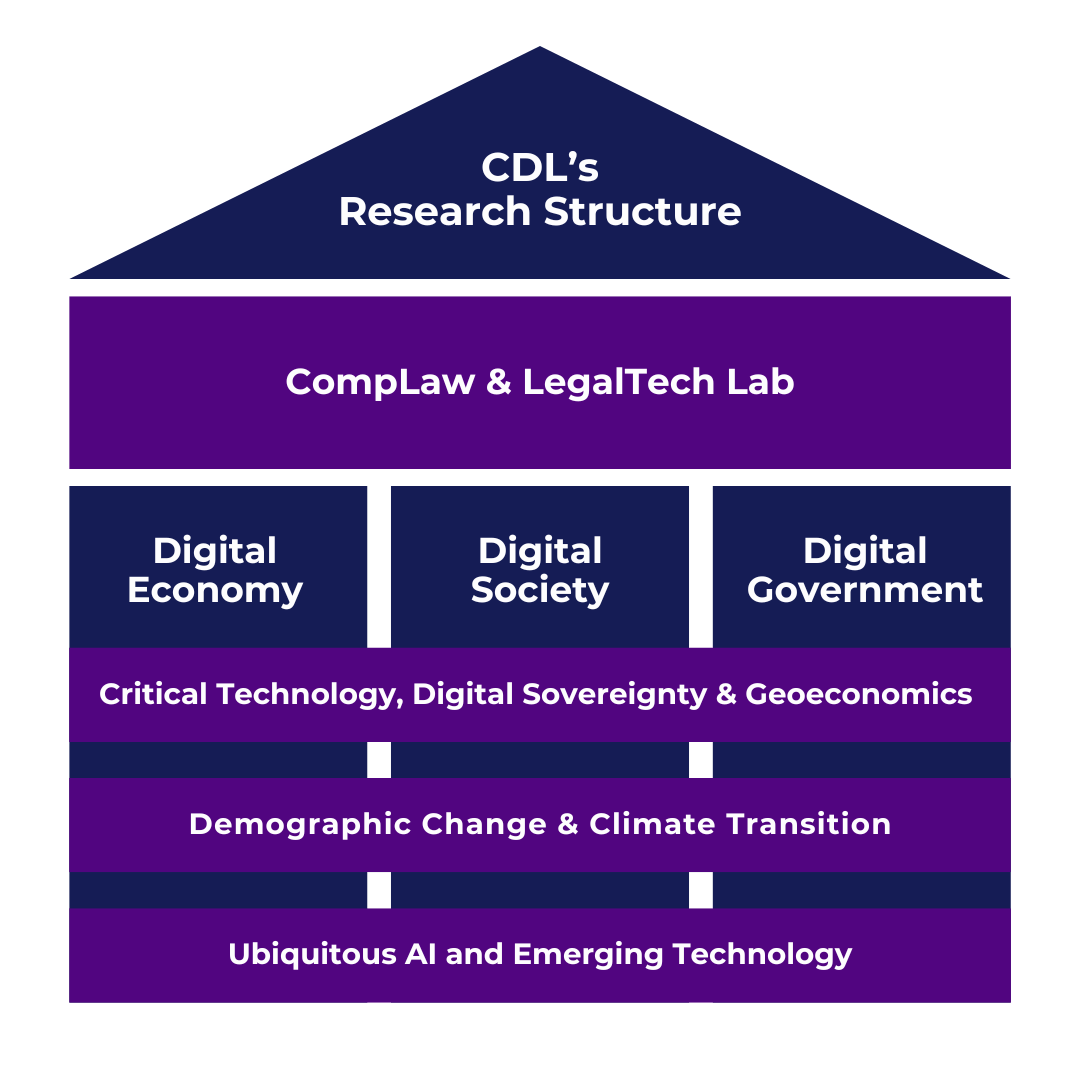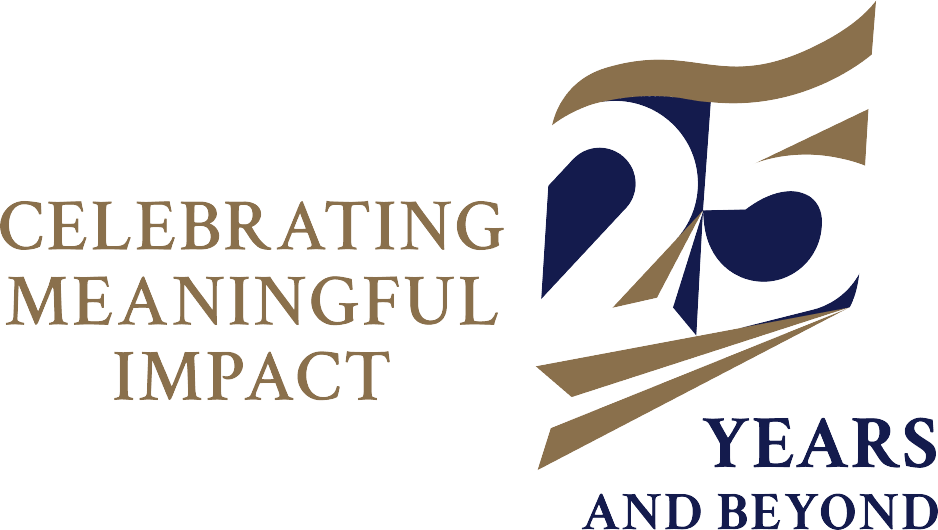Research Clusters
The Centre for Digital Law’s research is structured broadly into three clusters: Digital Economy, Digital Society and Digital Government. Overarching these Clusters, the Computational Law & LegalTech Lab focuses on the technical side of Digital Law, providing a site for technical collaboration both with the SMU School of Computing and Information Systems and with industry and government partners.
The Centre for Digital Law as an Interdisciplinary Research Centre
“Digital Law” intersects with numerous disciplines across the social sciences, humanities (SSH), and science, technology, engineering, and mathematics (STEM), providing a unique lens to focus interdisciplinary and multidisciplinary inquiries. Rather than delimiting a specific scope, Digital Law represents an approach that emphasizes the operational end of governance and ethics, where abstract principles are translated into concrete rules and practices. By addressing how laws and regulations shape and constrain social and economic interactions involving technology, digital law highlights the real-world impacts of technological governance. This focus also positions it as a crucial bridge between normative considerations—such as ethical imperatives—and the design and implementation of technological systems.
Drawing insights from movements like Law and Political Economy, digital law underscores the role of legal frameworks in structuring power dynamics and economic relationships in the digital realm. By situating technology within broader social, political, and economic contexts, digital law facilitates collaborations across disciplines, ensuring that diverse perspectives inform the development of equitable and effective governance solutions.


Digital Economy
The Digital Economy encompasses all economic activity driven by digital technologies, including e-commerce, data-driven innovation, and platform-based business models. It represents a significant shift from traditional economic frameworks, as data becomes a key asset, and technology alters how goods and services are produced, exchanged, and consumed. In this new economy, global trade networks increasingly depend on digital infrastructure and critical technologies while technology continues to redefine labour markets and disrupt established industries.

Digital Society
The term Digital Society refers to the profound transformation of social life by digital technologies. It captures how our interactions, identities, and communities are increasingly mediated through digital platforms and data-driven systems. In a digital society, technology influences not only how people communicate and access information but also how they engage with institutions, form collective norms, and exercise their rights. This concept is essential for understanding the interplay between digital technologies and the social fabric they shape.

Digital Government
The concept of Digital Government refers to the use of digital technologies to transform public administration and governance. Often, this involves leveraging data, connectivity, and computational tools to deliver public services, engage with citizens, and improve decision-making processes. Digital government reflects a broader shift toward technology-driven governance, where innovation is seen as a means to increase efficiency, transparency, and accountability.

Computational Law & LegalTech Lab
The Centre’s research will be supplemented by CL3, an interdisciplinary research lab which produces computational, scientific, and empirical legal research. We view computational law as an integral part of digital law. CL3’s core research focus is on how emerging computational and legal technologies can, will, and should affect the study, development, and practice of law. To this end, CL3 will employ primarily quantitative and (social) scientific methodologies to answer the above questions. Surveys, experiments, and simulations will be conducted to provide scientific backing to its work.
These Clusters are used heuristically to give coherence and structure to a research agenda that evolves over time in response to changes that are driven by technological advancement, economic cycles, and political pressures that are not always predictable. Many of our projects straddle more than one of these Clusters.

